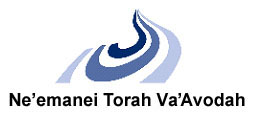The נאמני תורה ועבודה organization has sent a letter to Justice Minister Prof. Yaakov Ne’eman, Knesset Speaker Reuven Rivlin, Attorney General Yehuda Weinstein and Chairman of the Knesset Law Committee MK Dudi Rotem towards holding elections for Israel’s Chief Rabbis prior to the expiration of the term of the current chief rabbis on March 24, 2013.
The Knesset expeditiously legislated a law which passed in three votes to push off the election for new chief rabbis until after the national election on 11 Shevat 5773.
The legislation also extended the term of the current chief rabbis for a number of months.
Those working for timely elections understand the delay will be significantly more than three months, aware that after the election a coalition must be formed including the selection of cabinet ministers.
The letter calls for convening the Knesset in special session to set a date for elections, a timely date, the same type of special session that was called to postpone the election, adding the vote that passed in the special session was not respectable and such an important matter should not have been addressed in such a flippant fashion by lawmakers.
Regarding efforts to amend the law governing the nation’s chief rabbis, those backing the letter feel the need to amend the law is not urgent and the matter of electing new chief rabbis should be addressed in a timely fashion. They feel that since national elections are being held in January 2013, there is no reason why elections for chief rabbis cannot be held the following month, thereby electing new chief rabbis before the term of the current rabbonim expire, as it should be.
(YWN – Israel Desk, Jerusalem)
(Wednesday, October 31st, 2012)
http://www.theyeshivaworld.com/article.php?p=143266







